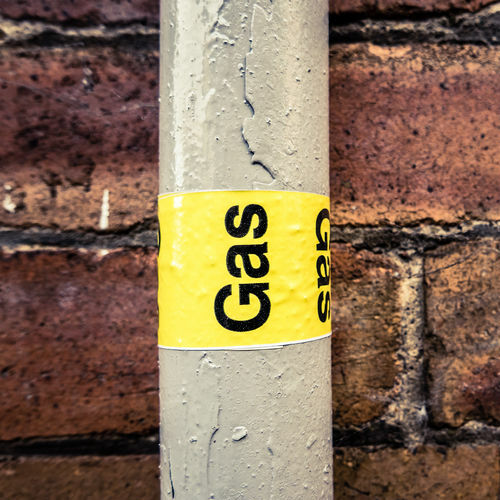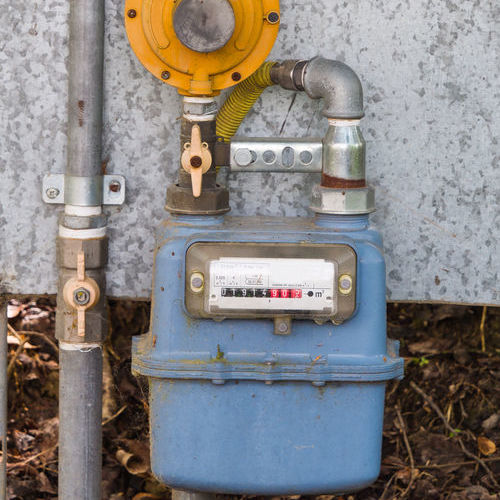
What are the signs of a gas leak in your home?
How can you tell if there’s a gas leak? If you have a gas line break in your home, you’ll usually have a gas leak. There are several tell-tale signs you have a gas leak that will require a gas line repair. The most obvious sign you have a gas leak in your home is a foul smell, often described as a rotten-egg smell, usually around a gas appliance like a water heater or stove. The odor comes from mercaptan, a chemical infused into natural gas so leaks can be detected.
If the rotten-egg smell isn’t present or it’s faint, gas leaks also reveal themselves through the lines hissing, the presence of bubbles in the water near the gas line, or the pilot light burns a yellow or orange flame rather than blue. You may also notice dead plants around the area of the leak. You also may feel sick and experience nausea, headaches, eye or throat irritation, trouble breathing, or even memory loss.
If you suspect a gas leak, you need to open your doors and windows, and clear out of the home immediately. Once outside, report the gas leak to the gas company or fire department, so they can shut off the gas. You should then have a professional come to repair the gas line.
Do plumbers work on gas lines?
Who can fix a gas leak? Normally, you have just a few options when it comes to gas line repair in house and who can fix a gas leak:
- Gas company technician
- A trained plumber
- A trained HVAC technician
- A homeowner
While the gas company may repair a gas line that’s broken on the street, they might not repair the portion of the gas lines maintained by individual homeowners. This will often depend on the individual gas company. Should you need a gas line repair, it’s usually up to the individual to find a professional to repair the line and stop the leak. While individuals can make the repairs themselves, it’s recommended they hire a specialty plumber or HVAC technician to do the job. Gas line leaks can be dangerous, and a professional natural gas plumber will have the right training and tools to get the job done safely and right. Make sure when hiring a specialty plumber for gas line repair, that person is licensed for work on natural gas lines.
If you have a gas appliance like a or stove or water heater that needs to be repaired, you can rely on the professionals at Drainmen Plumbing Inc. To find out more or schedule services, give us a call at 484-366-9362.
If you have gas appliances like gas furnaces, an HVAC technician will be needed. HVAC technicians will also be needed for air conditioning installation or other heating and cooling services.
Gas line repair DIY
While for safety’s sake it’s not recommended that you take up a gas line repair yourself, it is possible, especially for a smaller leak. Still, no matter the size of the leak, it’s preferable that a professional tend to the repair. The first step when repairing a gas line is to shut off the gas valve to stop the flow of gas into your home. You’ll then want to check for hairline cracks or holes. To seal the line, you’ll need to buy gas-rated pipe sleeves. You’ll also want to check the threads on the pipe. If they are loosened or warped, this may be the cause of the leak. You may just need to tighten the pipe with a wrench, but if this doesn’t work you will need to replace the whole pipe. Once the pipe is replaced, you’ll test it with a bubble solution. If the leak is repaired, there will be no bubbles.
Again, it’s best to save any gas line repair for a professional to avoid any safety issues. DIY repairs should be saved only for minor problems like a loose pipe. A bad repair could lead to serious problems, including explosion.
How much does it cost to repair a gas line?
The gas line repair cost will vary. If you have only one line to a single appliance, you can expect to pay anywhere between $150 to $650, including labor and materials. If the gas line that runs to the house has to be replaced you could spend anywhere from $3,000 to $7,000. You may also have to purchase a new appliance, which could cost anywhere from $400 to $5,000, depending on the type of appliance you are replacing.
How do they fix a gas leak?
No matter how extensive the repair may be, the first thing that’s required is shutting off the gas flow. The plumber will then test each gas line to find the source of the leak. Usually this is done by applying a soap solution to each fitting. When the soap bubbles, the leak has been found. Some plumbers may also perform an air pressure test. After the source of the leak is found, the plumber will then begin repairing the leak. This usually requires the pipe to be replaced.

Gas line repair covered by insurance
Usually homeowner’s insurance doesn’t cover the cost of gas line repair. This will depend on the policy and the circumstances of the break. If the line was broken by a contractor while working on another buried pipe or excavating your yard, the policy might cover these damages. Similarly, the repair may be covered if the damage was caused by the utility company. In some cases, gas companies offer gas line insurance that you pay monthly, along with the service. This type of coverage will usually cover the full cost of repair or replacement.
If you’ve discovered you have a gas leak, and need gas line repair in Pottstown, PA, depend on the professionals at Drainmen Plumbing Inc. When you need our services, call us at 484-366-9362.






